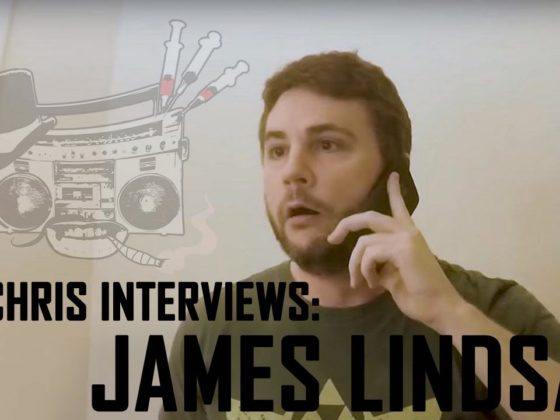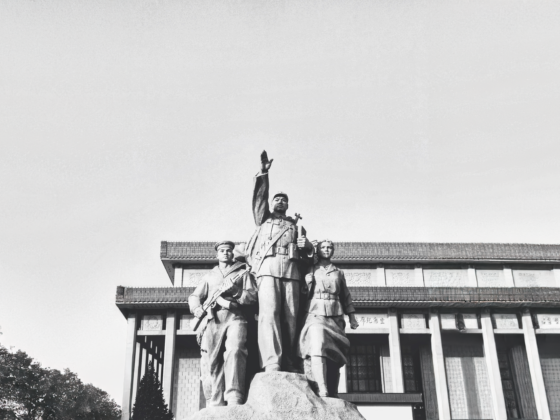I get a lot of questions about Critical Social Justice and related topics, and I try to do what I can to answer them. Sometimes, the questions I receive are so useful in terms of helping people understand the important points being asked about, that I wish I could share them with everyone. In service to that, I’ll experiment with a series called “James Explains” in which I will answer ask-me-anything sorts of questions either in articles or in podcasts. If you have a question for me and are comfortable seeing it published (with or without your name), send it along. Maybe the answer will be useful to building the discussion.
I recently received the following email:
Hi James.
I don’t know if you’re warm to inquisitive correspondence but thought it was worth a shot, so no worries if you choose to ignore and go about your, I’m sure, mountain of work.
I’ve been following your work since the Grievance Studies Affair. Though I disagree with you on some things, I appreciate reading it and thinking about it and strengthening my own ideas. I really appreciated your exchanges with Thaddeus Russell.
I’m just a lowly 34-year-old recently graduated Bachelors Of Science in Sociology. I truly enjoy social theory and considering graduate school. I’m curious about your views on the field of Sociology. Do you lump Sociology in wholesale with the “grievance studies”? Do you think it’s a legitimate field? What would your advice be to future Sociology scholars, if you think it’s a field that can be legitimate?
Thanks. Hope you are well.
Erek
Here is my reply:
Hi Erek,
Sociology is a complicated topic. As we said when we went public with the Grievance Studies Affair, and as we have come to understand even better since, it’s best to think of grievance studies as a kind of infection. Different fields are infected to different degrees. Ultimately, what they’re being infected with is critical theory (and, to some degree, postmodern epistemology and ethics). Just throwing out some numbers, gender studies is probably more than 95% infected, if not wholly infected by definition. Ethnic studies is extremely highly infected, though not 100%, although critical race Theory and postcolonial Theory by definition are the infecting agents.
Useful for understanding this complexity, the same goes for postcolonialism, which is a broader field of study than postcolonial Theory, and includes socialist, materialist, and liberal approaches to studying the postcolonial context, all of which are against the Social Justice way, though the first two of these are, in fact, also critical in a different regard. The battle between radfems and gender Theorists is another location where you can see this: both are critical, both are constructivist, and both draw upon postmodernism, but they do not agree with one another (literally violently). So, there’s also a dimension of “it depends on what you mean by infected” here, as there are different strains of the critical virus.
Sociology is much more complicated. On the one hand, sociology really began with Durkheim, and the Critical Theorists of the Frankfurt School saw Durkheim as a foundational scholar. They didn’t want to do a purely traditional theory of sociology, though; they wanted to do simultaneously traditional and critical theories of sociology. Much of sociology therefore developed under the direction of Critical Theorists, who seem to have eventually lost control of the critical side (which is much easier than the traditional side, especially in social sciences). That said, not all of sociology is critical in orientation, theoretical-first in approach, or browbeaten into compliance. There are, in fact, even conservative sociologists and sociologists who vigorously resist Critical Social Justice and the influence it has on their field.
Whether they are conservative or not (and on this I’m not sure), Bradley Campbell and Jason Manning, who wrote The Rise of Victimhood Culture, (resting heavily on the work of Donald Black) are two sociologists who have no love for the Critical Social Justice approach. I’d therefore call them traditional-theory sociologists and back their project completely. This support has nothing to do with whether I agree with their conclusions and everything to do with the fact that they’re playing the scientific game correctly (disclosure: I do agree with the work they’ve done and find it valuable and important).
So, as for whether sociology can be legitimate, then, the obvious answer has to be yes. The question really comes down to whether it’s being done as a traditional theory (which seeks to understand a thing) or a critical theory (which seeks to critique it so that they can change it, a la Marx). Traditional-theory sociology is as rigorous as a science about such a complex phenomenon as society can be, and it employs statistical methods, rigorous sampling, and the usual methodologies of theory formation and hypothesis falsification. It’s very difficult to do well given the complexity of the subject matter (societies), but at least in principle it can definitely be done rigorously (right).
This is why we called, in the wake of the Grievance Studies Affair, for the reform, not destruction, of the fields we named, including sociology. We extend this even to gender studies and all the rest, wishing to see them as genuine sociological fields instead of ones tucked within the theoretical humanities and utterly corrupted by critical activism.
So, my advice to anyone who wants to go into sociology is to eschew critical methods and try to be as rigorous and open-minded as possible. It really all comes down to one main point: are you willing to let whatever the truth is be the case, or does the truth have to line up with some theoretical take about how the world works?
If you are there to try to find truth, you can do it rigorously, though you may find it hard to publish anything that goes against the grain, especially in certain journals. Your job prospects may suffer accordingly. If you are there to promote your ideology or to find ways to support activism you already believe in, you’re doing a disservice to yourself and to the field, and you’re better off doing something different with your time and, maybe, coming back to it after you’ve matured a bit. So, pursue truth as objectively as possible. Don’t let your activism lead the way, but, if you want to do it, let it follow from what you find. The real charge of the sociologist should be to understand society, not specifically to change it. Change should follow naturally from rigorous work, and it’s the kind of change that works and lasts.
This advice extends to existing sociologists too. They need to reject critical theory. In fact, they should do everything they can to distance themselves from the “grievance studies” fields and make it very clear that these are not sociology. They should demand more rigor and try to review methodologically poor and politically biased work and start making it harder to publish. They should be critiquing bad sociology and theoretical humanities (critical theory) posing as sociology both academically and publicly. This won’t be easy for them, but the future reputation of their field may well depend upon it.
Hope that helps.
All the best,
James













10 comments
Going to caveat the s__t out of this but it’s good to go back to Aristotle here. The method for the subject in question is going to depend. Falsification is very good for atoms and rocks but not so good necessarily for human studies – sociology, economics, psychology, etc. Any place the focus is on a thing that can react with intention and self direction – free will, we are likely going to need, at the very least, some acknowledgement of that aspect in the study of that thing.
Certain brands of economics for instance take as a starting point that a human act is an intentional act and build from there. It’s not that there are not other things that humans do, but when they act intentionally, there are deducible (logical) understandings possible about that action. There are implications we can infer from that starting point. This is one branch of human studies and it doesn’t rely on falsificationism.
I am doing my PhD in sociology (in Europe), and I fully agree especially with this one:
“The real charge of the sociologist should be to understand society, not specifically to change it.”
I am only in the beginning of my work, but what I have noticed to be quite tricky is how to reach that goal (understanding society) from scientific perspective. I am struggling especially what comes to methods and how to use them without not falling to that “power-knowledge-language” trap, for example. If you use interviews as a data (as my data partly is), you almost inevitably end up to that “discourses have power” circle. How to reach knowledge that tries to understand, not change some phenomenon?
I have started to wonder if sociology needs really some kind of different approach how to do rigorous research. And more than that, how that would happen? Are there any sociological theorists who have thought or written about this? I really would love to read their ideas! Because now it seems that postmodernically oriented thinkers are those where sociology leans as well in the end. I would really, really like to know optional ways to do research, because I believe that it is indeed the only way to reform sociology.
Hi, I have a BA and MA in sociology. Not all of us go into academics and research. I do applied sociology and work as a counselor in the child welfare system. I just wanted to write this in case anybody else studying sociology or considering going to school for it is thinking about career options. There are more career options than going into academics. Also, I do remember having some professors that were into things like critical race theory but it really didn’t influence me that much. I think if got a good head on your shoulders and your naturally skeptical you’ll come out okay 🙂
I’d be very surprised if you’d be allowed to have different ideas in the Wokist enclave of contemporary sociology. So anyone considering it should, I think, go in with their eyes wide open to that.
There is a larger overarching issue involved here. I am not an academic and have not really studied sociology. But, I get around a bit. And I have noticed that many academics (which I read because they like to write journal articles and blog articles, not just academic papers) just won’t go certain places. A perfect example of this “won’t go there” list can be found on Wikipedia, its list of pseudo-sciences. This list is viewed by some (like Jerry Kroth) as a list of taboos. It’s not that they aren’t interesting or have no academic value. It’s that it’s really “not OK” to talk about these things in academic circles. Thus, if there is anything of value on this list. academia will fail to integrate it or move ahead using that new knowledge.
For me, the perfect example is past life recall. This has been investigated by academics (University of Virginia School of Medicine) but their work is thoroughly ignored. It has also been investigated extensively outside of academia. It is a real phenomenon. But its implications are so vast that it is simply shunned. Just dialog – much less research – into this subject could have huge impacts on psychology, on all the evolutionary approaches, on education and on general culture including religions. And so, instead of finding some way to approach it anyway, it is simply dropped.
If people who visit this site want to understand what is going on with “critical theory” more thoroughly, they might need to be willing to get out of their own boxes a little more and realize what others have been looking at for decades now. Might surprise you!
I doubt you’ll find any sociologists reviewing ‘while fragility theory’. All of them are aware of the pitfalls of even engaging in discourse with these people, and everyone has had one or more encounters with them over the years.
However, for James I would like to say that his appearance in shows (such as Joe Rogan) and his activity on Twitter, can in fact be detrimental to perserving and protecting those social scientists that actually and willfully employs the scientific method. Of course, some deviance from the positivist tradition is only natural when the object under study is a large number of subjects (with free will), but the _ideal_ should always be to be as close as possible to objectivity. In my experience, this applies to most sociologists, political scientists and social anthropologists.
The problem is that the viewers and followers on various social media channels are unaware of this inner complexity within the social sciences, and they are for sure unaware of this silent majority of science-oriented scholars. This results in loss of legitimacy of these disciplines altogether, which will further lower them on the “market” so to speak. Their market value will go down. When the market value goes down, you’ll see less science-abled individuals join in on these disciplines, and you will in fact make matters worse; not better.
I hope this can, at least on occasion, could be pointed out when speaking to the general public.
I would like to see sociological peer review of white fragility theory. I have sought such in vain. Gushing book reviews by journalists exist aplenty. I have read critiques by psychologists and economists, but nothing by sociologists. If you know of any, please email me the location of these reviews so I may read them. One weakness Robin Di Angelo presents is the lack of any rigorous review of her books by her peers. She has declined to debate her theories, only presenting them via a bully pulpit at her seminars and in interviews with the press. Her only evidence is anecdotal and does not encompass the experiences of white persons such as I. She “denies my existence,” to use the plaint of some alleged victims. I think that, like many bullies, Di Angelo is a coward. I’d like to see her openly discuss her theory with someone such as Valerie Tarico or John McWhorter, but she does not dare.
> I’d therefore call them traditional-theory sociologists and back their project completely. This support has nothing to do with whether I agree with their conclusions and everything to do with the fact that they’re playing the scientific game correctly (disclosure: I do agree with the work they’ve done and find it valuable and important).
This is a genuine question: are there any contemporary sociologists whose work you don’t agree with, or whose work you don’t find “valuable and important”, who you *do* think are “playing the scientific game correctly” and whose project(s) you back completely?
Given the incentive structure of “publish or perish” in these fields which are salvageable, as long as people can publish junk and get away with it they will. It seems that disincentivizing irresponsible publishing could be helpful. Having the reputation of a journal be tarnished by publishing junk would seem to disincentiveize, but there’s always another publication with lower standards that can step in. I guess recognition that the reputation of the publishing journal is important reduces incentive to publish junk. At the end of the day, separating the wheat from the chaff might be the best outcome that can be hoped for in humanities fields. In the sense of making them publish in different places.
Find me the rigorous stats and sampling methods in “classical” sociology. They do not exist. Durkheim, Weber, Veblen, Sutherland, Parsons…The major players that James is alluding to were big theory guys who did not make their intellectual impact via rigorous quantitative methods. That does not invalidate their theoretical and intellectual contributions. He is not establishing accurately what is to be saved about non critical, classical /traditional sociology.